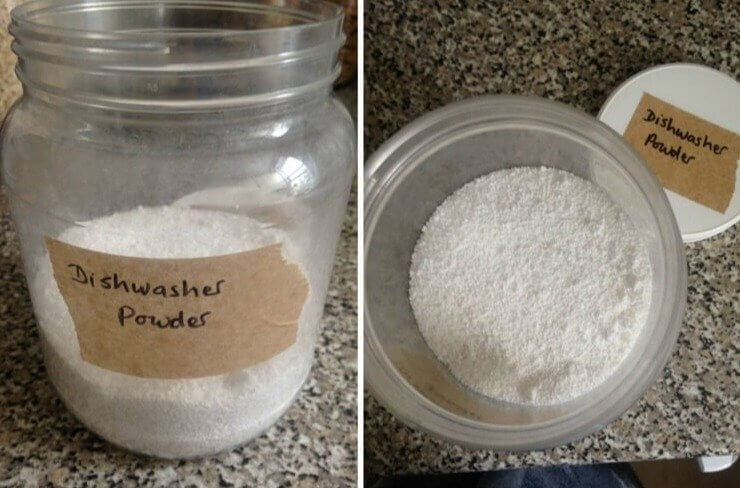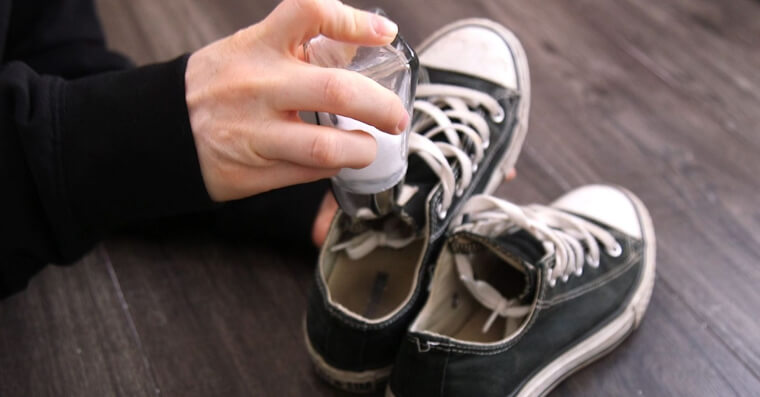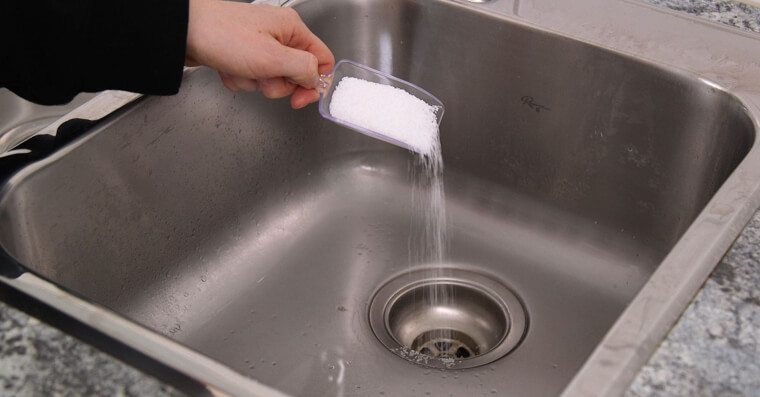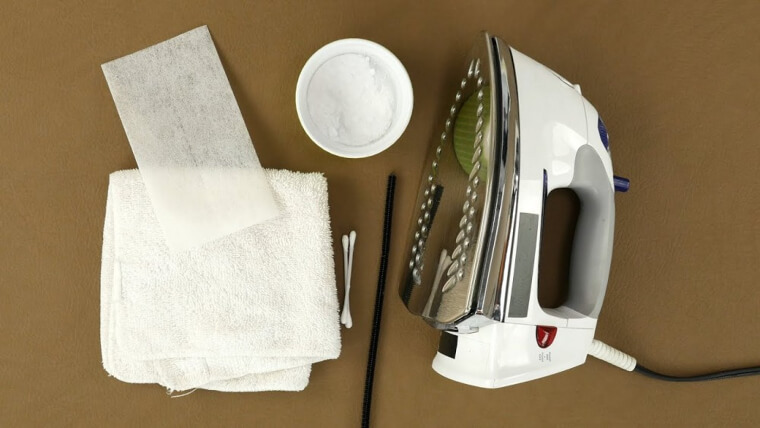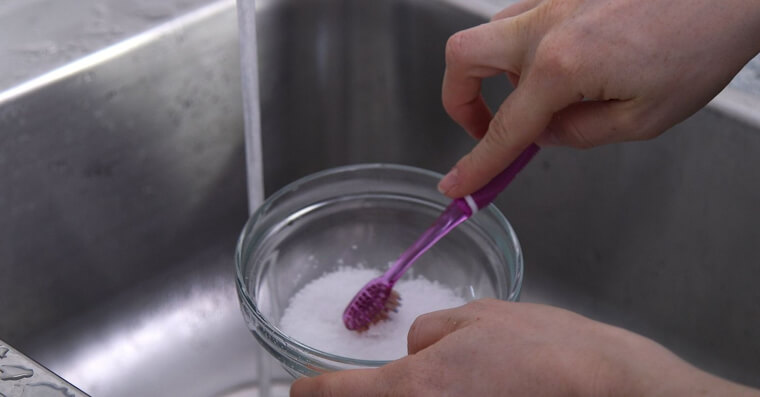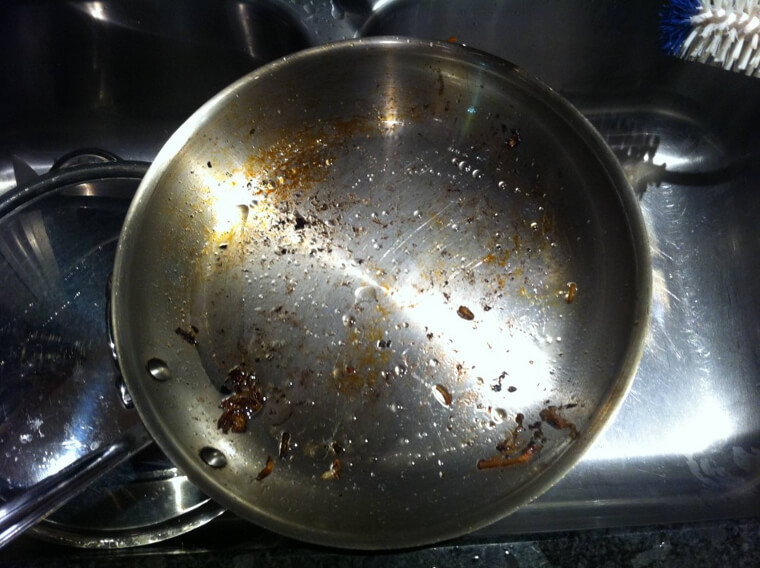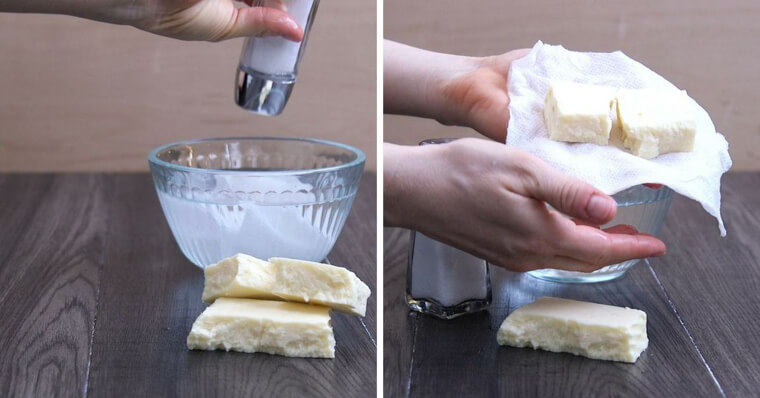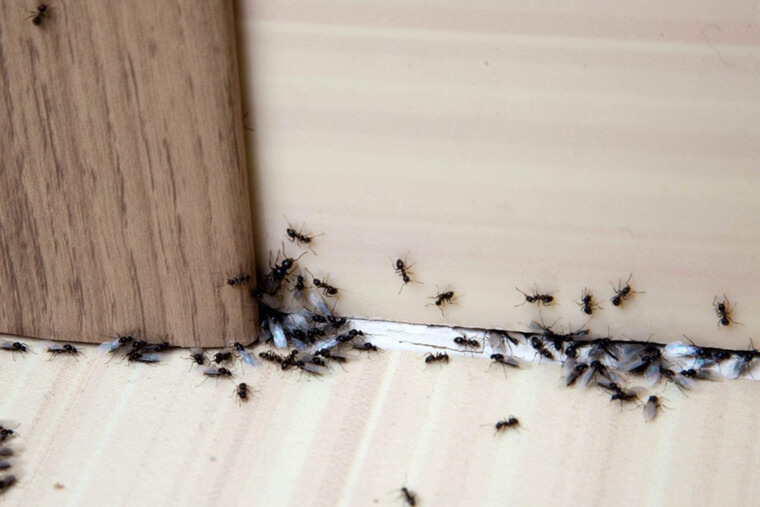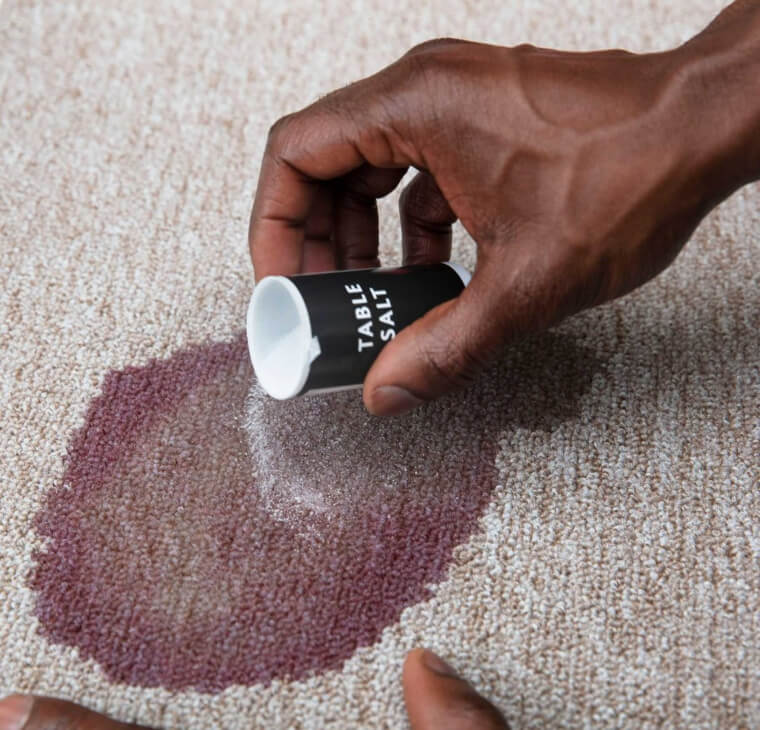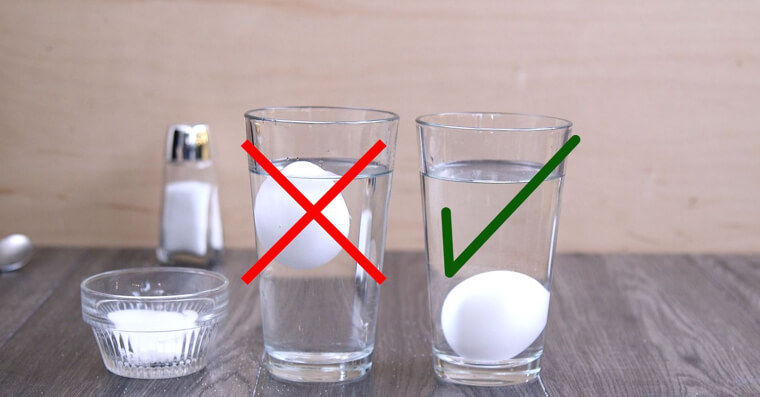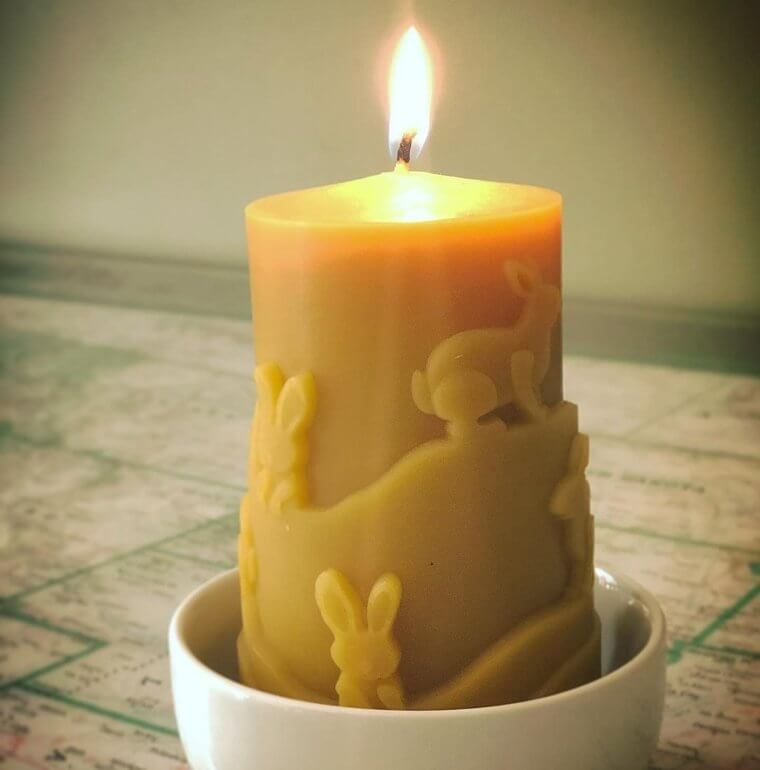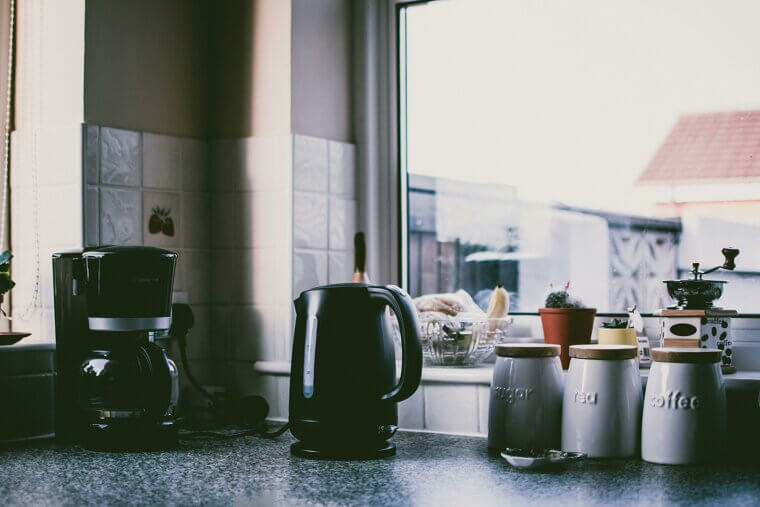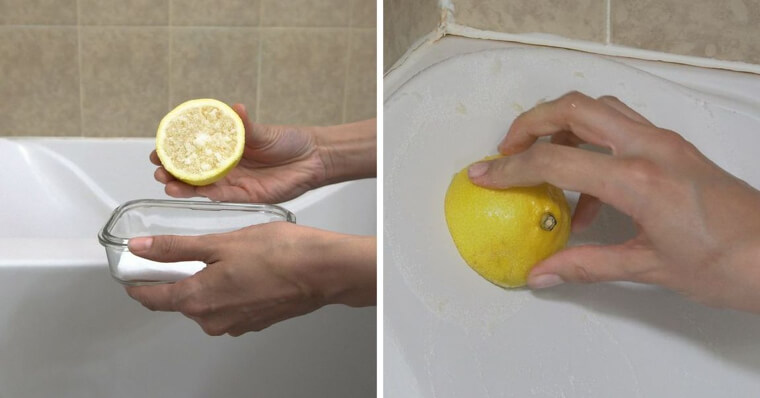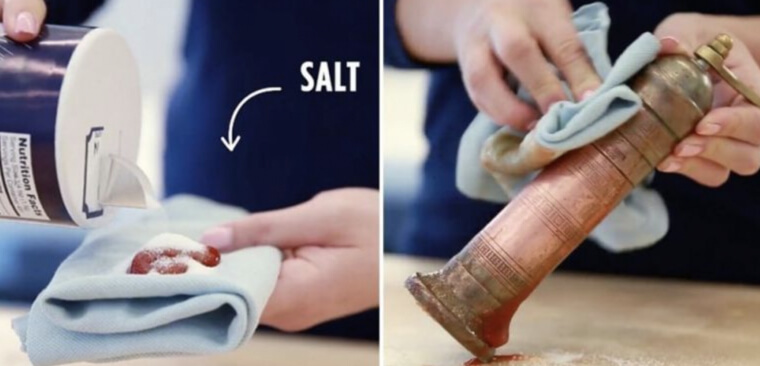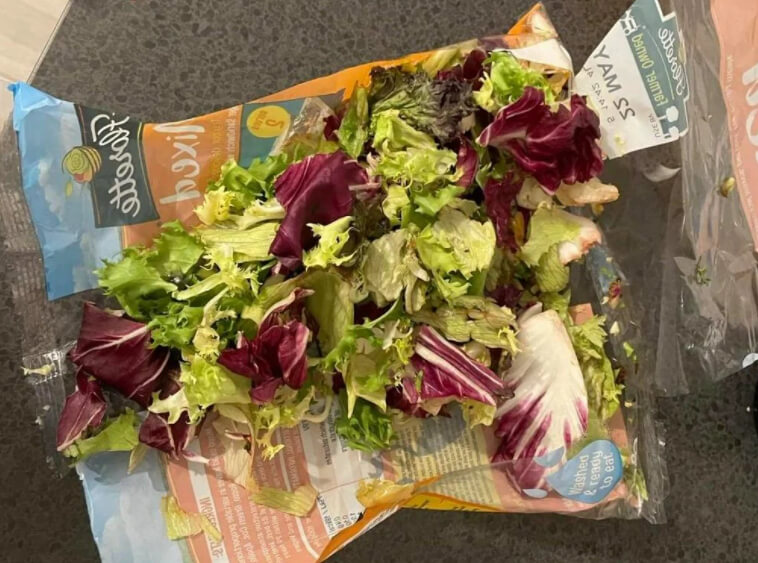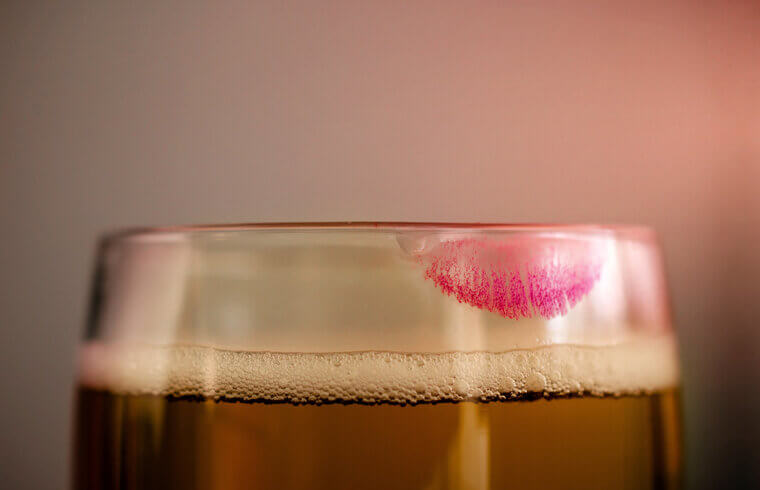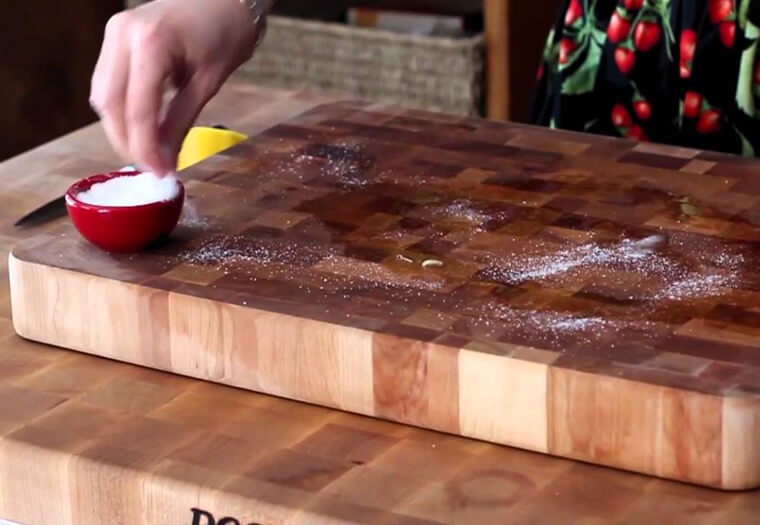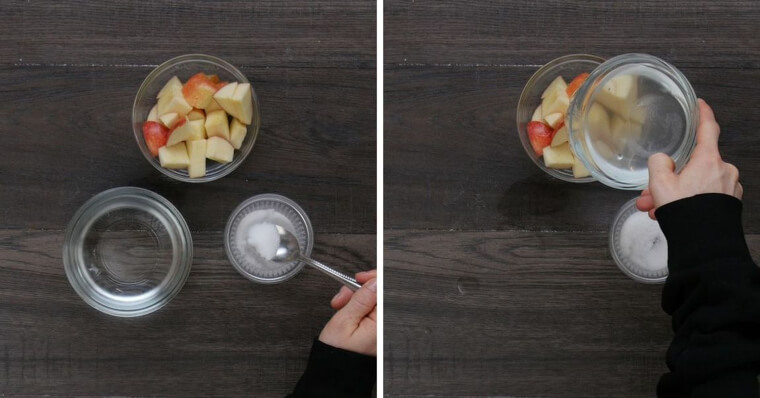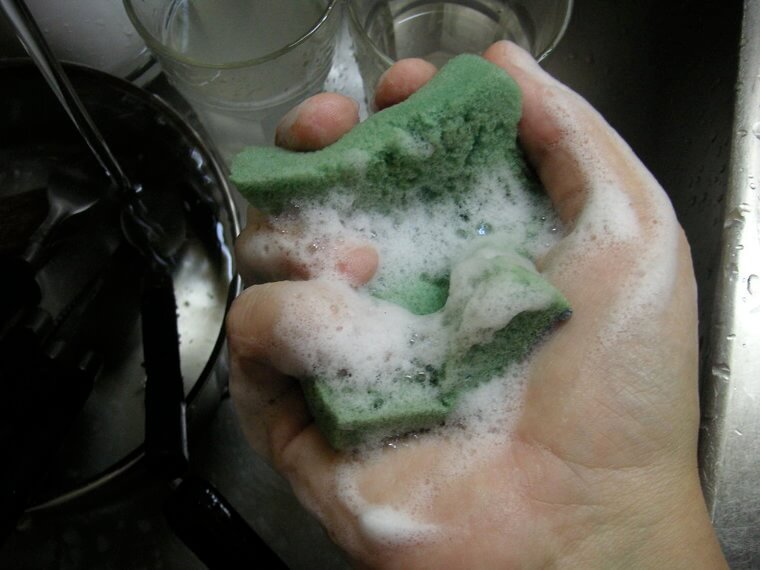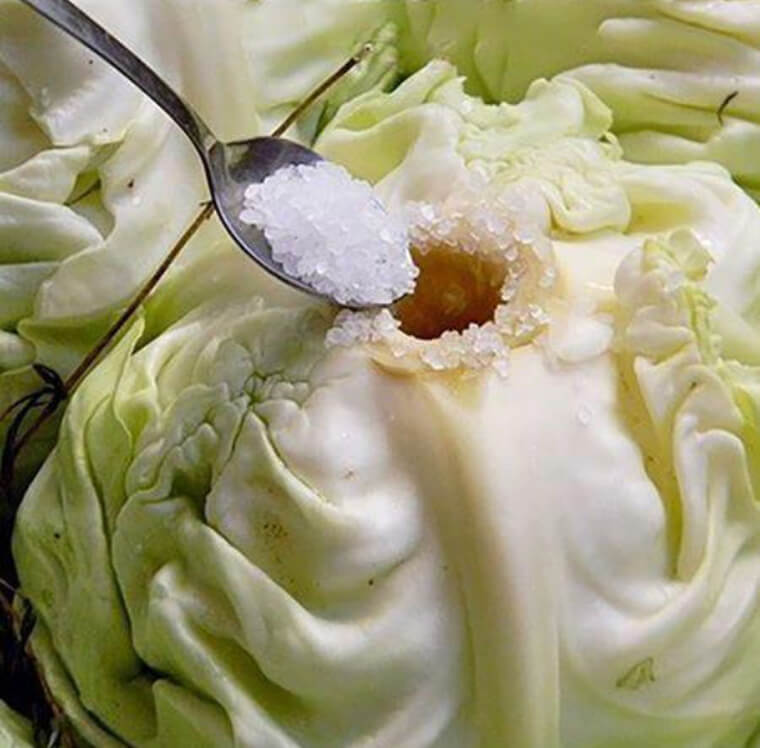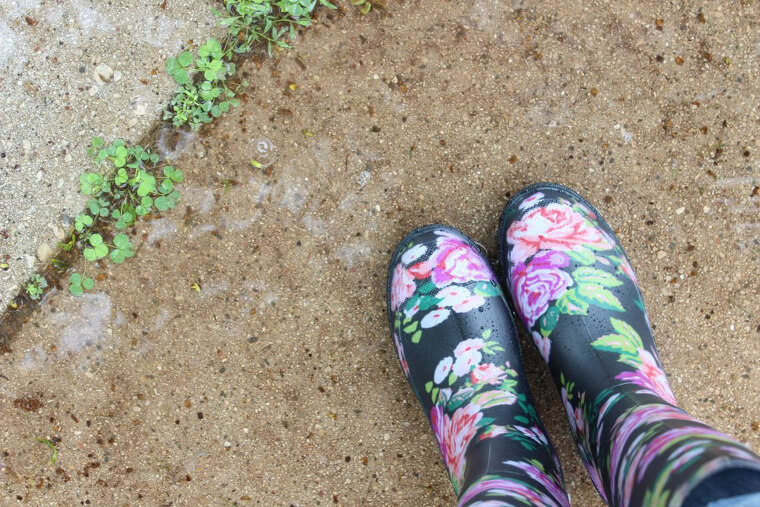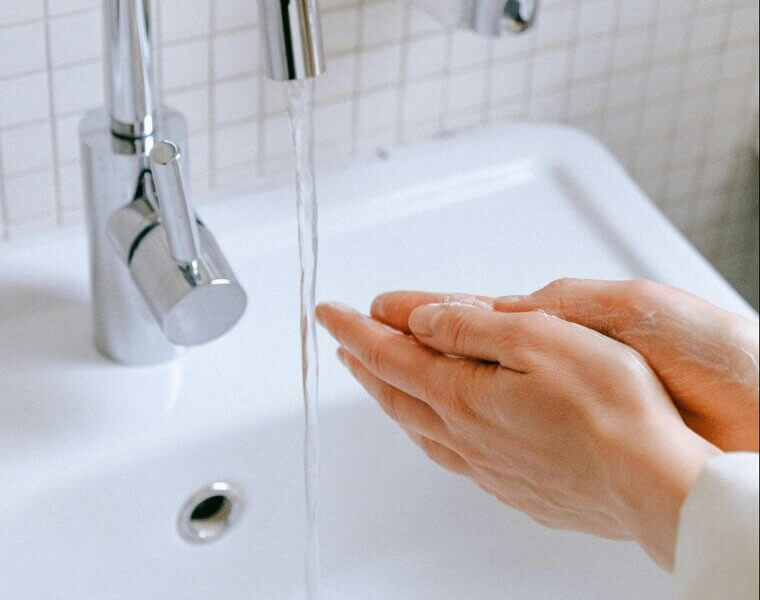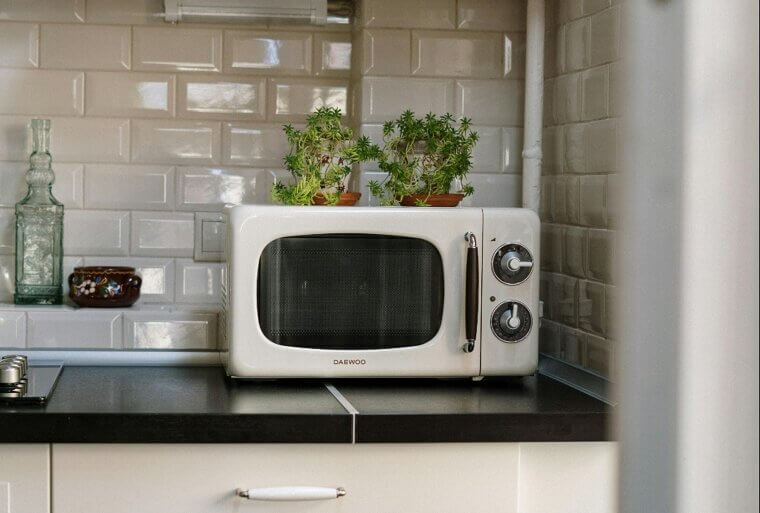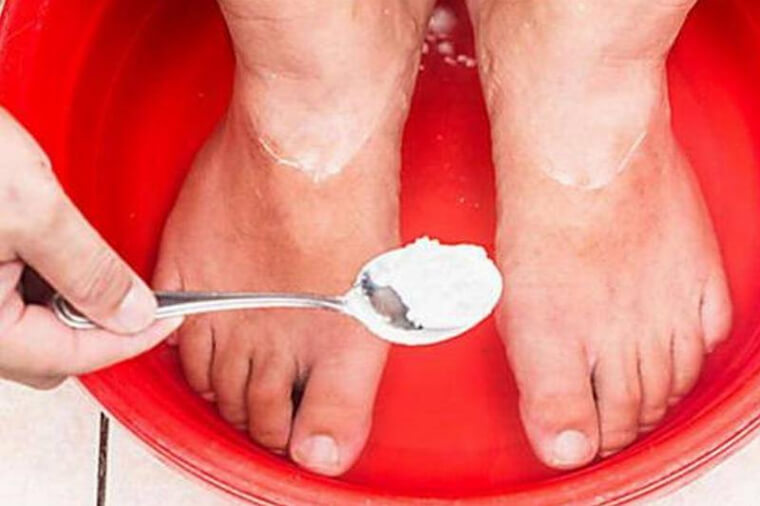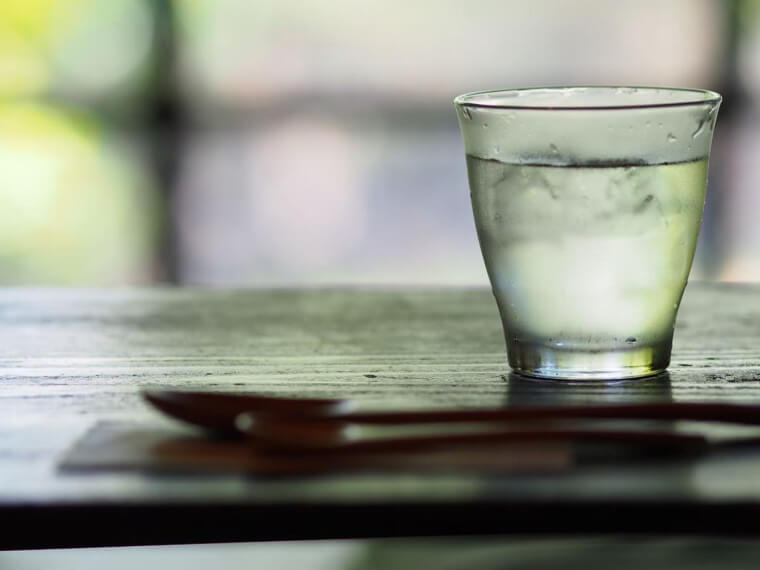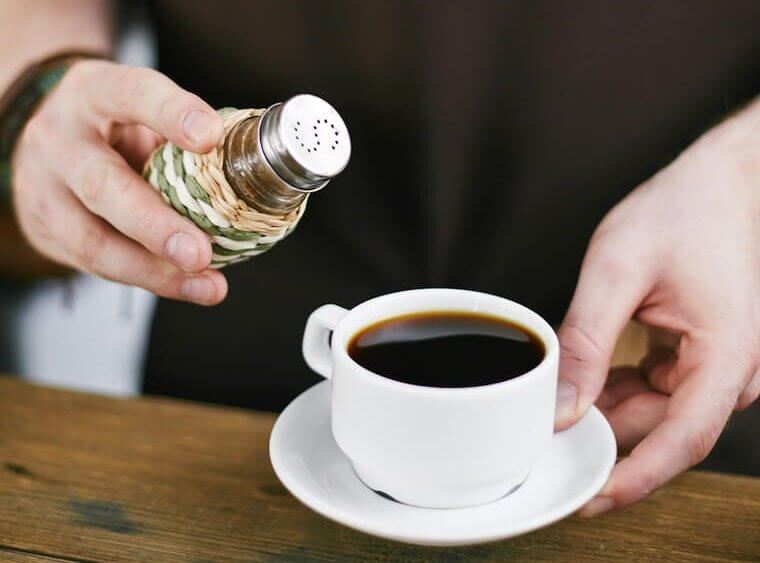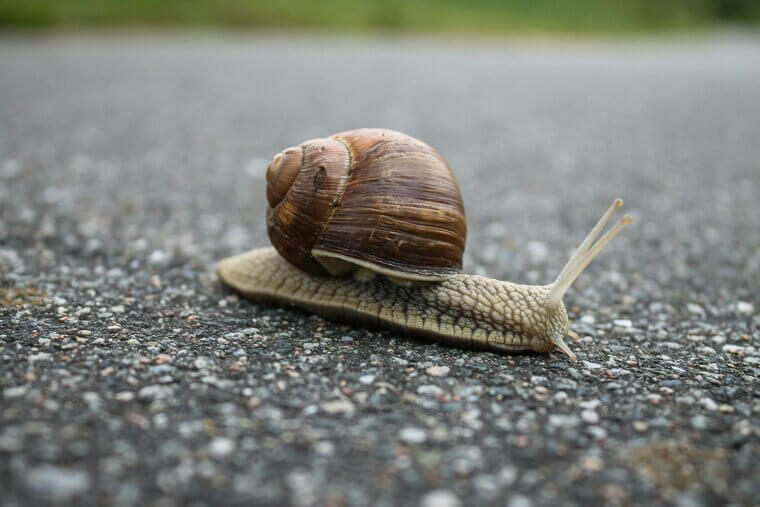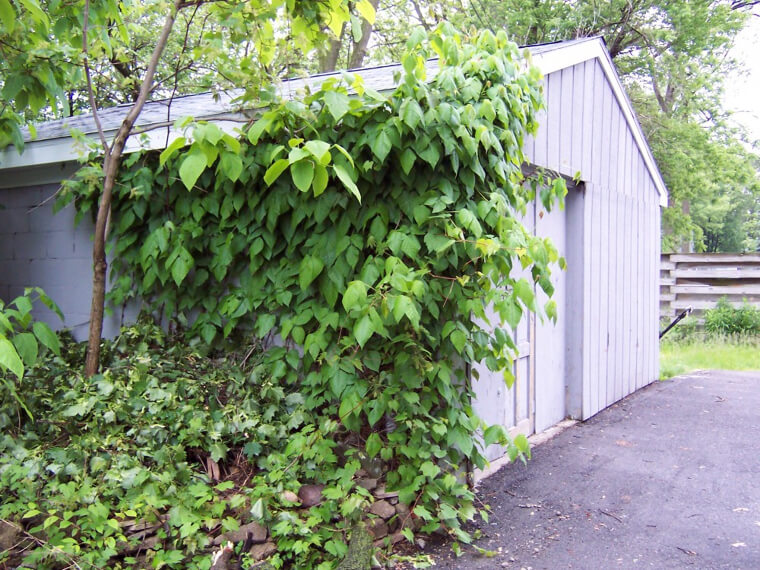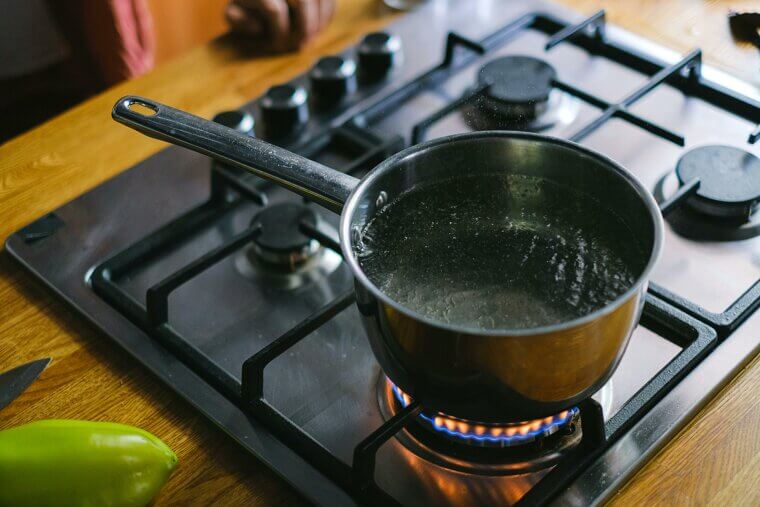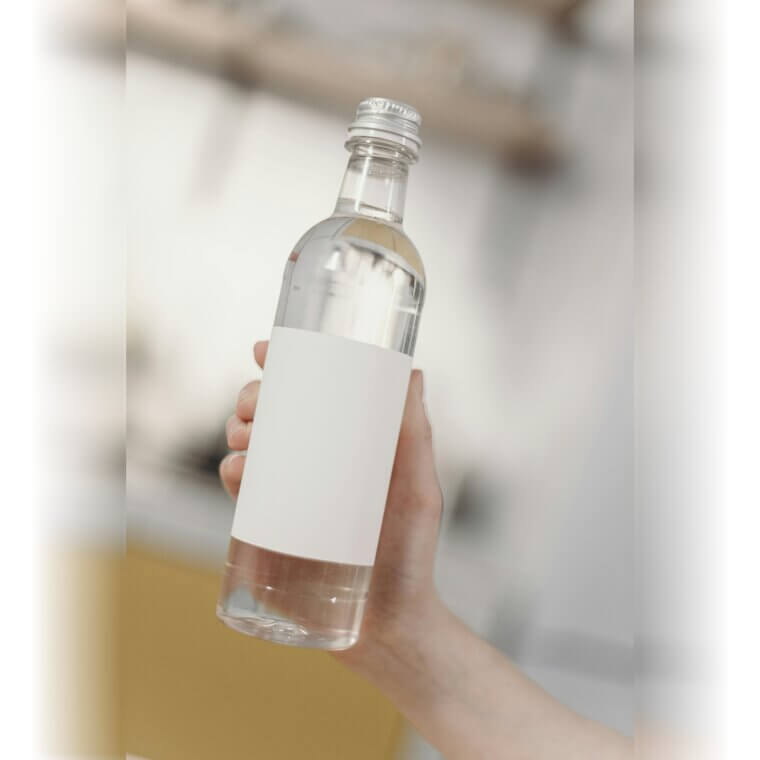Save Money on Dishwasher Detergent
Storebought dishwasher detergent can be absurdly overpriced given its rather cheap ingredients, many of which are also quite toxic. But you can make a more natural and far cheaper version of your own at home. Just combine equal parts washing soda, baking soda, citric acid, and salt into a bowl and mix. Then load it into the dishwasher in place of your regular detergent and run the machine as you normally would.
If you prefer to use hardened tablets rather than powder, just add a cup of water to the above, stir, and wait a couple of minutes for it to finish fizzing. Then scoop the mixture into ice cube trays, pack it down, and let them dry into homemade tablets.
Alleviate Irritating Bites and Stings
Salt works as a simple and effective antiseptic and anti-inflammatory agent, which can make it a very calming antidote to insect bites. So the next time you start itching a mosquito bite, for example, give your nails a rest and instead go into the kitchen to make a simple paste of salt and water. Gently rub the paste on the bite for some quick relief. It's far more hygienic than scratching.
Aside from insect bites, a bath of hot saltwater can also dry out the rash caused by contact with poison ivy, though this step should be taken only after you try to wash off the affected area with cold water and soap.
Bye, Bye Shoe Odor
Sometimes wearing socks isn’t enough to prevent your feet’s sweat from being absorbed by your gym shoes, and over time this accumulated moisture can cause quite a stench. Instead of throwing your shoes in the wash (which can weaken their materials and fade their colors), sprinkle salt into your shoes, let the salt sit in the shoes overnight, and then pour the salt out of the shoes in the morning. The salt absorbs the moisture (your sweat) and can significantly cut down the unpleasant smell if you repeat this trick after every workout.
This trick is most effective when you salt the shoes as quickly as possible after finishing your workout and taking the shoes off. It takes discipline, but it’s best to apply the salt before jumping in the shower.
Unclog That Drain
When you have a clogged drain, it might be tempting to buy some effective-but-toxic cleaning products filled with harsh chemicals. Don’t. You can probably make a cheaper and safer solution from the ingredients you have in your kitchen. Combine ½ cup of baking soda and ½ cup of salt in a bowl, mix it together, and then dump it down the drain. Follow that up by pouring ½ cup of vinegar down the drain, and then wait about 30 minutes. Finally, run hot tap water for about 10 seconds. Whatever’s clogging your drain is unlikely to survive that concoction.
Not only is a natural drain-clearing solution safer for you and your family to use, but it’s also gentler on your pipes. Chemical cleaners might corrode pipes, particularly if they’re made from plastic.
Clean Your Iron’s Soleplate
If you stain your iron’s soleplate (the hot metal bottom) and continue to use it without cleaning it, it can discolor your clothes. But there’s an easy solution: Drape a towel over your ironing board and rub a teaspoon of sea salt onto it. Run the iron at its highest temperature (without steam) and then iron over the salty spot of the towel. The salt should pull off any of the stuff stuck to the bottom of the iron.
Another option is to mix white vinegar and salt together and heat it on the stove. After the liquid has cooled down, soak a cloth in it and scrub the soleplate clean.
Make Homemade Toothpaste
Have you ever come to the end of your day only to realize that you’ve run out of toothpaste? If you’re too tired to go buy more, you can instead make a simple paste from sea salt, baking soda, and water. It’s not a good idea to use this homemade solution for brushing your teeth regularly, as it lacks some of the healthy fluorides that store-bought toothpaste contains. But it’s a good quick fix for one night, and it will leave your teeth feeling fresh and clean.
Be careful when trying this remedy if you have highly sensitive gums; in that case, it might be better to run down to the corner store to buy some actual toothpaste, no matter how tired you might be.
Clean Greasy Pans
No one likes doing dishes, but a pan lined with thick grease is a particular headache to clean. Scrubbing with regular hot water and soap is unlikely to do the trick, but generously covering the pan with salt can work wonders. Let the salt sit for about 10 minutes to absorb the grease. Then use a dry towel to rub the salt into and around the pan, and finally wash the pan with warm water as you normally would.
Salt can also be used to remove burnt food from pans. Just cover the pan's surface with salt, let it sit for a moment, and then add water. Boil it on the stove for 5-10 minutes, and then wipe it clean with a sponge.
Extend Dairy’s Eat-By Date
Lightly salting a variety of dairy products can help prevent them from prematurely spoiling, giving you more time to enjoy them. For example, if you drop a pinch of salt into your milk carton and lightly shake it, the milk will stay fresh for about a week longer than its printed expiration date. Similarly, wrapping cheese in a paper towel soaked in saltwater can help absorb moisture and keep the cheese from molding early.
To give your dairy products even longer shelf life, try placing them toward the back of your refrigerator, which is less exposed to warm air every time you open the fridge door.
Stop Ant Infestations
While it may be tempting to reach for a toxic spray like Raid when you see a line of ants in your house, a far healthier solution is to use salt. There are a few ways to use salt when combatting ants, but the easiest is to use salt water. Boil some water on the stove, add a generous helping of salt, and then stir the mixture until the salt is absorbed. After the water cools, fill up your spray bottle and spray the solution anywhere in the house that you’re worried might become infested.
If the infestation is more localized, line door cracks with salt to prevent them from invading your space, or simply sprinkle table salt anywhere you’ve noticed that the ants love to congregate.
Lift Wine Stains From Carpets
Red wine and a light carpet can be a recipe for unsightly stains, not to mention anxiety every time you host a dinner party. You may have heard that the best way to get rid of a red wine stain is to counteract it with white wine, but save that bottle of white for drinking and instead let salt come to the rescue. First, remove as much of the wine as you can with paper towels, then wet the stained area with a small amount of cold water and blot it with a paper towel. While there’s still moisture on the stain, cover it with salt and leave it to sit overnight.
When you wake up, your salt solution should have turned pink from magically absorbing the wine. Just scoop the salt up with a dustpan and then vacuum to remove any remaining grains.
Maintain Bright Colors
Beauty fades with time, and so do beautiful, brightly-colored fabrics. But there’s a trick to keeping their brilliance longer. Whenever you launder brightly-colored garments, add half a cup of salt to your regular laundry detergent, and make sure the machine’s water temperature is cold. The salt helps set the clothes' colors and keeps them from running in the wash. Incorporate this step into every laundry cycle, and you’ll significantly slow down the fading process.
For even better results, you can also individually pre-soak a garment in a saltwater bath before running it with the other clothes in the wash.
See If Eggs Are Edible
It’s easy enough to lose track of eggs’ expiration dates, particularly if the eggs aren’t stamped and if you’ve already recycled the egg carton that they came in. But testing for their freshness is fortunately also quite simple. Fill a tall glass with water and then add about two teaspoons of salt. Mix the salt into the glass so that it dissolves, then add the egg while it’s still in its shell.
Did the egg drop to the bottom of the glass? If so, that indicates it’s still fresh. If it’s suspended halfway in the water, it’s likely still edible. But if it floats to the top completely, get rid of it and buy some new fresh eggs.
Make Candles Dripless
Candlelight can instantly change the mood of a room. But having to clean up a mess of melted candle wax can quickly ruin your mood. So you can either significantly delay the length of time it takes for candles to start dripping or eliminate the drip entirely. After you buy new candles, soak them in a bowl of warm and highly salted water for about three hours or so. Remove them from the water and dry them thoroughly. The next time you light them, be prepared to marvel at the beautiful and mess-free candlelight.
How does this work? Salt increases the melting point of the candle’s outer layer of wax, which prevents, or at the very least delays, the drip.
Sanitize Your Coffee Maker
Residue from coffee gradually builds up in your machine after every use. If left unchecked, not only will this give your coffee a very bitter taste, but it will also turn your coffee maker into a breeding ground for bacteria. To clean the coffee maker out, fill up the pot with water and add a few tablespoons of salt, then go through a regular brew cycle using the saltwater mix. Get rid of any lingering salt taste by running the machine once more with regular, unsalted water. Repeat this about once a month to ensure your machine is consistently clean and safe to use.
Cleaning your coffee maker with vinegar can also be a highly effective way to sanitize. But the problem with vinegar is that its long-lasting aftertaste can be harder to get rid of than salt.
Defeat Dandruff
Massaging your scalp with salt can alleviate dandruff in a few ways: 1. It removes the dead skin accumulated on your scalp, which exfoliates your scalp’s pores. 2. It absorbs excess oil from the scalp. 3. It dries your scalp out, which can reduce the growth of fungus. To give your scalp a salt massage, start by parting your hair into sections so that the scalp is exposed. Apply a teaspoon of salt to the scalp, wet your fingers, and massage the salt in. Then wash off your scalp as you normally would.
If you don’t have the patience to adopt the above routine, try adding salt to the regular shampoo you use. The ratio should be about half the salt to the amount of shampoo you run through your hair.
Scrub Your Tub Until It's Sparkling Clean
Bathtub buildup—the grey layer of ickiness made up of leftover water minerals, soap, oils, and dead skin—can be one of the most challenging spots in the house to clean. But rather than using heavy chemicals that might make your eyes tear up, use nature’s natural acids to get rid of the gunk. Start your bathroom cleaning ritual by cutting a lemon in half and dipping the fleshy fruit side into a thick heap of salt. Then scrub the bathtub with the lemon so that the acid/salt combination can break down the built-up grime.
After scrubbing, leave the juice to sit in the tub for half an hour. Then wipe the tub down with a regular washcloth and rinse the tub with water to finish.
Strip Tarnish From Copper
Copper is a striking metal that can add a rich texture to your home decor or jewelry collection. But it naturally loses its original color after long exposure to oxygen, which can cause it to develop a green and/or blue tarnish. Fortunately, this tarnish can be safely and naturally removed by dissolving about a tablespoon of salt in a cup of white vinegar and then rubbing the solution on the tarnish with a cloth.
All out of vinegar? Check to see if there’s ketchup in the fridge. It has natural acidity and salt that may also be effective when rubbed onto tarnished copper.
Make Lettuce Last
Too much moisture can spoil the fresh, crisp texture of lettuce. But a combination of salt and paper towels can keep lettuce leaves perfectly dry for your next salad. Start by washing lettuce as you normally would, and then let the leaves sit out to dry a bit. Sprinkle salt on a connected series of 2-3 paper towels (don’t tear the towels apart), then wrap the lettuce inside. Store the wrapped lettuce in a sealed plastic bag in the fridge.
In this case, a little salt does wonders. But too much salt can dry the lettuce out more than you intended, wilting your greens. So be careful to lightly sprinkle the paper towels with salt rather than caking the salt on.
Un-Stick Lipstick
Ever notice how your lipstick stubbornly refuses to budge from glasses? In a way that might be reassuring, as lipstick is, after all, meant to stay put. But it’s quite embarrassing to hand a lipstick-stained glass to a guest. So the next time you notice a lipstick stain on some glassware, attack its waxes and emollients with the power of salt. Lightly wet a washcloth, dip it in salt, and then gently scrub the lipstick off the glass.
After scrubbing with salt, you can handwash the glass with soap as you normally would or run it through the dishwasher. This 1-2 combination should have the glass looking sparkly clean.
Sanitize and Scent Cutting Boards
Foods with particularly strong odors—like onions, garlic, or fish—can leave residual smells in your wooden cutting board even after being washed repeatedly. Replacing that unpleasant smell takes special care. After you’ve finished hand washing your board as you normally would, sprinkle it with a large helping of salt. Then cut a lemon in half, and squeeze its juice onto the salted board. Rub the salt into the board using the cut side of the lemon, and leave it to dry.
After the salt/lemon juice mixture has dried on the wood, scrape it off, wash the board, and then let it dry. The original odor should now be replaced with a pleasant, light citrus smell.
Conserve Cut Flowers
Flowers can add a sense of joy and occasion to your living room, but the joy can fade fast when the flowers wilt prematurely. Fortunately, alternating the freshwater in your flower vase with saltwater every other day can work wonders to give the flowers a longer lifespan. Saltwater accomplishes this in a few ways: It kills harmful bacteria; feeds the flowers nutrients, like potassium; and encourages the flower stems to consume more freshwater and stay hydrated.
When you buy flowers, the florist might try to upsell you plant nutrients, but you can pass on these now that you know the saltwater trick. The nutrients probably consist of something similar to salt, like citric acid.
Preserve Fruits
Some cut and peeled fruits, like apples, brown quickly when exposed to oxygen. This affects their appearance and weakens their crisp taste and smell. If you cut too much fruit, don’t throw it away. Save it for later in the week by mixing half a teaspoon of salt in a cup of water, then letting the fruit bathe in the saltwater solution for about 10 minutes. Remove the fruit from the liquid and store it in your refrigerator until you’re ready to snack on it.
If you’re concerned that the saltwater solution will give your fruit an unpleasant, salty taste, don’t be. Just rinse the fruit off with regular water before eating it, and you shouldn’t notice a difference.
De-Grime Your Sponges
One particularly greasy meal can turn what was a clean, new sponge into a gross, unusable mess. But the next time you’re about to throw a dirty sponge away, consider reviving it with some saltwater instead. Place your dirty sponge in a small bowl of cold water, then add a few tablespoons of salt and stir it to dissolve. Let the sponge soak in the bath overnight, which will allow the salt to kill off the sponge’s accumulated bacteria. The sponge might not be as good as new in the morning, but it will definitely be a big improvement.
Not only can this trick save you some money, but using it regularly cuts down on the number of sponges you’ll consume over your lifetime, which is kinder to the environment. That’s a win-win.
Ferment Delicious Cabbage
Sauerkraut (fermented cabbage) is just about the easiest dish you can make with salt, so there’s no need to buy it at the store. Cut a well-washed green cabbage head into fine slices, transfer it to a clean bowl, and add 1.5 tablespoons of kosher salt. Then massage the salt into the cabbage for 5–10 minutes, and finally transfer it to a clean mason jar (retaining any liquid that seeped out of the cabbage during the massage). Cover the pot with a cloth and tighten it with a rubber band.
Let the jar sit at room temperature in a part of your house that isn’t exposed to direct sunlight. After about a week, remove the cloth cover and enjoy the delicious fermented cabbage, refrigerating any remaining sauerkraut afterward.
Kill Weeds Quickly
Weeds have an annoying tendency to pop up in the cracks of stone walkways or brick walls, which can ruin the aesthetic appearance of the stones. To kill the weeds, you can make a saltwater solution consisting of three parts water to one part salt. Then run a sprinkler or manually water the stone cracks with fresh water to dilute and dissolve the salt. Then water nearby plants as a preventative measure to ensure that no saltwater has sustained contact with non-weeds.
Just remember to use salt sparingly if you decide to tackle weeds in other parts of your yard, like your garden. Oversalting can create very poor soil conditions that will limit your ability to grow plants.
Freshen Up Your Hands
Some smells are so strong that they linger on your fingers, no matter how many times you’ve washed your hands with soap and water. Think onions, curry, or fish—these scents are particularly tough to get rid of! Fortunately, salt is a natural deodorizer. To get your hands smelling nice and fresh again, just lightly wet your hands and then rub them with salt. Wait for about one minute, then wash the salt off your hands with warm water.
If, for some reason, salt didn’t do the trick and your hands still smell, try rubbing your hands with the juice of a lemon. That has a strong smell too, but it’s a nice one!
Naturally Clean Your Microwave
Microwaves can get disgustingly messy, but it may not be a wise idea to spray the inside of a microwave with tons of toxic cleaning chemicals. The next time liquid spills in your microwave while heating up food, sprinkle the mess with some salt and let the salt sit for a few minutes. Then you should be able to easily wipe off the mess with just a cloth and some hot water.
For a more thorough clean, apply baking soda to a wet cloth and use it to wipe down the microwave’s entire interior. Doing this regularly will keep the microwave spot-free and smelling fresh.
Brighten the Whites in Fabrics
Why waste money buying new tea towels, bath towels, socks, or linens when you can restore yellowed fabrics with salt? Rather than running discolored fabrics through the washing machine, fill a large pot with water and add a tablespoon of salt and four tablespoons of baking soda. Stir the liquid and bring it to a boil on the stove. Add the discolored cotton or linen fabric and let it boil for about an hour or so. Remove with tongs before letting it cool.
Just note that this hack works best for cotton and linens with one single color (likely white) rather than multi-colored fabrics.
Treat Your Feet
When you don’t have the time or money to pay for a foot massage, there’s plenty you can do to pamper your feet at home. Soaking your feet in hot water mixed with Epsom salt can not only reduce pain and stiffness in your foot muscles and joints but also keep your feet from developing fungus and odor. A saltwater foot soak is also a great step to take before you exfoliate the rough skin on your heels with a pumice stone, as the saltwater softens the skin and makes it easier for dead skin to fall off.
Just make sure the water is hot enough (between 90°F–100°F) and that you use about half a cup of Epsom salt. Let your feet soak for about 30 minutes, and then moisturize them afterward to feel completely renewed.
Soothe a Sore Throat
Have you ever rolled your eyes when you complained of a sore throat, and your mother told you to simply gargle some salt water? Though it may sound like a silly folk remedy, Mom had a scientifically sound point. Salt absorbs mucus from throat tissues, which temporarily dries the virus out. Dissolving half a teaspoon of salt into a cup of warm water and gargling for 5–10 seconds, several times a day, will give your throat the relief it needs.
Remember, this remedy will treat the pain associated with a sore throat, but it won’t cure a viral infection itself. That will only go away with time (likely 5–7 days).
Improve Your Coffee’s Flavor
When your pot of coffee turns out a little more bitter than you’d hoped for, your first instinct might be to cover up the bitterness with sugar and cream. Using salt instead might not sound like the most appetizing suggestion, but it has scientific validity: Sodium ions block our taste buds from fully sensing a beverage’s bitter flavors, which in turn enhances its sweeter notes. Not sure how much to add to your cup? Start by sprinkling, then taste to assess if more is needed.
Salting coffee isn’t unique to one specific culture or cuisine and is a common flavoring for coffee drinkers in countries as diverse as Turkey, Finland, and Taiwan.
Defend Against Slugs and Snails
Slugs and snails love to eat all kinds of plants, but they’re particularly fond of young seedling plants, so if left unchecked, they can really prevent your garden from growing to its full potential. If you see slug and snail bites on your plants, go out into the garden at night and catch them in the act. Put on some gloves, move them away from your plants, and then sprinkle salt on them. The salt will dehydrate the slugs until they die.
Just be careful not to carelessly throw salt directly onto your garden’s soil or onto the plants themselves, which can dehydrate a plant’s roots or burn its leaves and stems.
Prevent a Moldy Shower Curtain
A moldy shower curtain is not only unpleasant to look at and embarrassing when you have guests over. It can also be a significant health hazard to those who regularly use your shower, as it can trigger allergies and serious breathing problems. To keep your shower curtain both clean and sanitary, periodically give it a saltwater bath: Close your bathtub drain, fill the tub with hot water, add one cup of salt, and then spread the salt throughout the water with your hands. Let it soak for a few hours, and then hang the shower curtain to dry.
Another option is to simply spray your shower curtain down with saltwater at the end of each day, but this is less thorough than giving it a saltwater wash.
Destroy Poison Ivy
Some plants make for beautiful, welcome additions to your yard. But an intruding plant, like poison ivy, can be quite dangerous. While home and garden stores sell plenty of chemical solutions for killing poison ivy, using saltwater is a natural, organic alternative. Fill a bucket with a gallon of water, a few pounds of salt, and some dish soap. Then—on a clear, rain-free day—load the liquid into your spray bottle and spray it onto the poison ivy leaves. Continue to spray every few days until the ivy vanishes.
Note that saltwater can be just as destructive to other plants that you actually do want to keep in your yard or garden, so try to keep your saltwater spray localized to just the poison ivy itself.
Extinguish Grease Fires
Grease fires are responsible for 1 out of 5 home fire deaths, and it’s every home chef’s responsibility to be prepared for them. Trying to extinguish a grease fire with water will only cause the fire to spread further. Instead, after turning off the fire’s heat source, pour a large quantity of salt on the fire. Salt will deprive the flames of the oxygen they need to survive, and the salt itself won’t catch fire.
Another way to extinguish a grease fire is to cover it with a large metal lid, which will also deprive it of oxygen and therefore extinguish it.
Make Containers Like New
Plastic containers are great for storing leftover food in the fridge and for taking lunches to work or school. But although they’re technically reusable, they tend to gradually retain unpleasant smells after multiple uses. You probably already know what we're talking about. One deodorizing trick is to wash them with hot water and soap, let them dry, and then sprinkle the inside of the containers with salt before you store them away for future use.
When you go to use the containers again, simply wipe the inside out with a paper towel to get rid of any lingering salt. Then the containers should smell and taste like new.
Boil Water Faster
Saltwater is less resistant to changing temperatures than regular freshwater, so the amount of heat needed to raise saltwater’s temperature is correspondingly lower as well. This means adding salt to your boiling water when cooking could save you some time you would otherwise spend waiting and staring at the pot, though just how much time depends on how much salt you add and its ratio to the quantity of water you’re boiling.
Any Italian grandmother will tell you that you should already be salting your boiling water quite heavily if you’re cooking pasta. So this step can potentially kill two birds with one stone.
Keep Breath Fresh
Add mouthwash to the list of items you no longer need to buy at the grocery store; you can easily make your own mouthwash at home, complete with the antibacterial properties it needs to keep your breath fresh and your gums healthy. Mix half a spoon of baking soda and half a spoon of salt with a cup of water. Swish the mixture around in your mouth for 30 seconds after brushing your teeth, and then spit it out into the sink.
Change your routine by alternating with a sage and salt mix instead. Boil salt water and add a handful of sage leaves. Let it steep and cool, then swirl the liquid in your mouth after brushing your teeth as you would any other mouthwash.
Poach Like a Pro
Poached eggs can help make an ordinary breakfast at home look, and taste like you’re dining in a 4-start restaurant. But many beginner chefs miss a critical cooking step when they try poaching at home. Once your water is boiling, add half a teaspoon of salt to it and gently stir. Bring the boiling water down to a simmer before putting the eggs in. Cover the pan, turn the heat off, and wait a few minutes before serving. Bon appétit!
Aside from adding salt to the water, you can also experiment with adding vinegar, which some chefs prefer. Try out both to see which suits your taste.
Quickly Chill Beverages
Nothing spoils a party like telling the guests they’ll have to patiently wait 30 minutes or so until the wine, beer, or champagne has cooled. But you can cut down on the wait time with a simple salt trick. Fill a cooler or a deep bowl with water, ice, and plenty of salt. Mix it all around, and try to make sure your bottles are covered in as much water as possible. Wait 5–10 minutes, and they should be nice and frosty.
How does this work? When ice melts in regular water, its temperature will increase to 32°F. When it melts in saltwater, its temperature will stay significantly lower, creating the perfect cold bath for your beverages.

